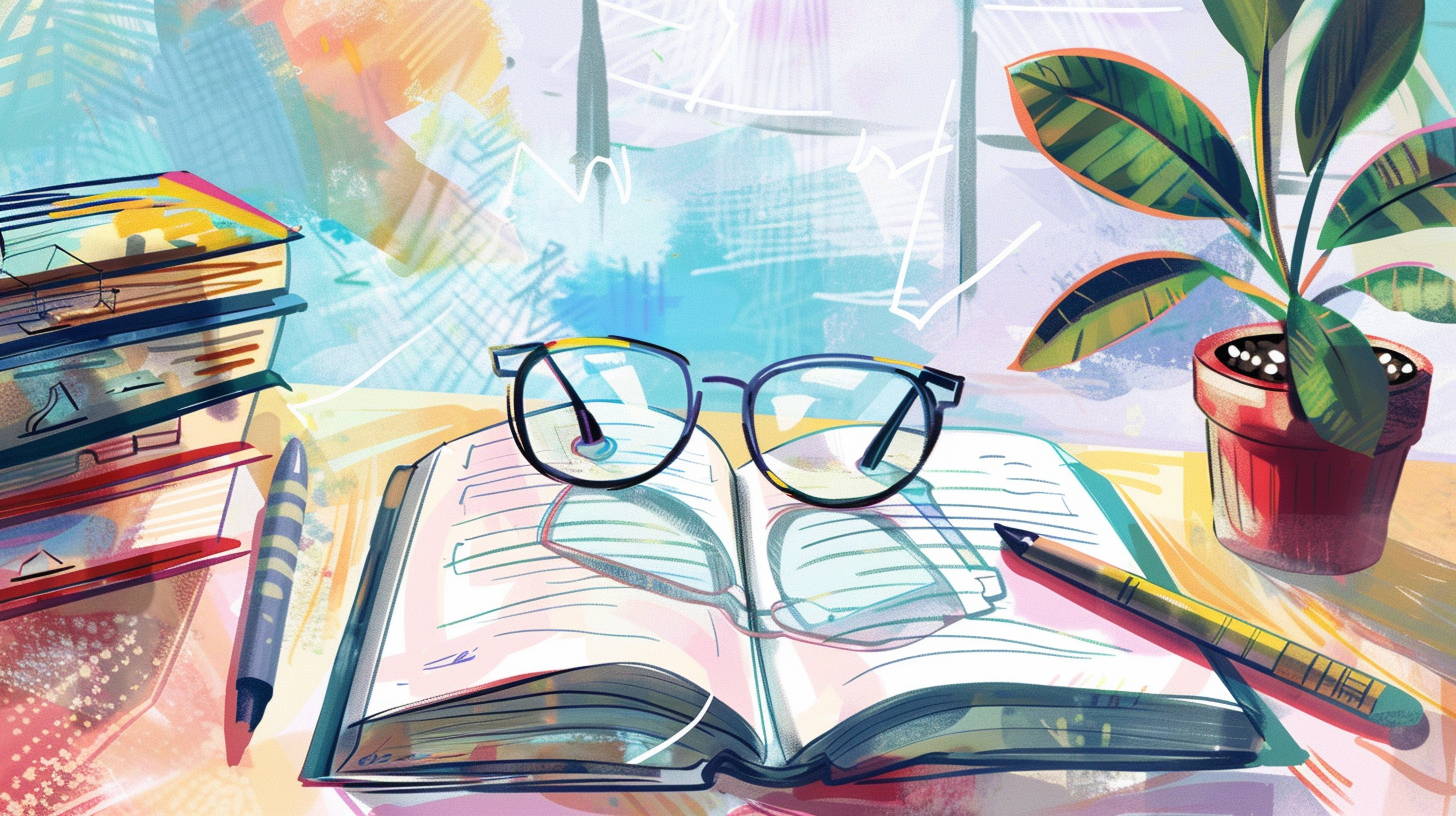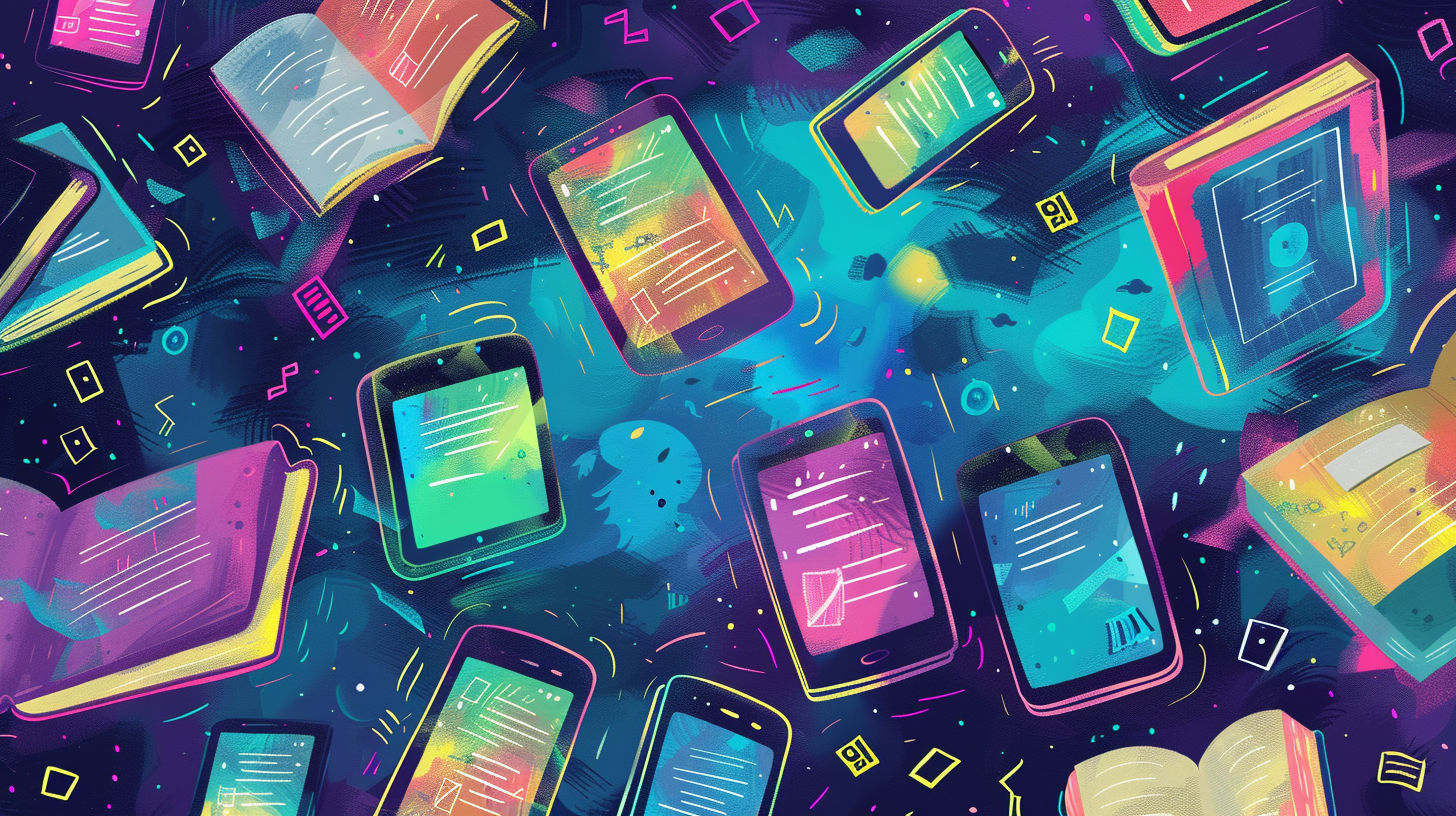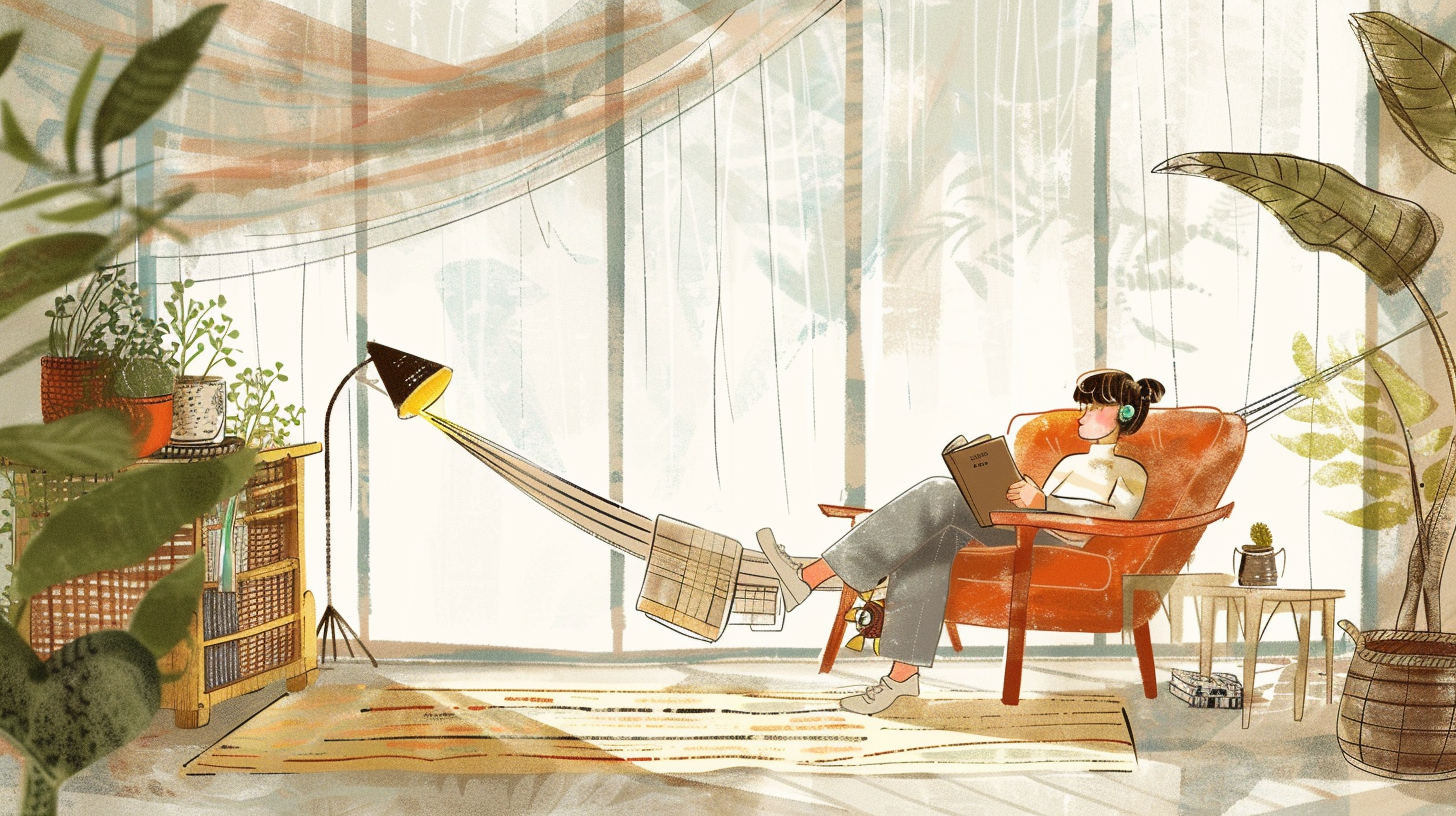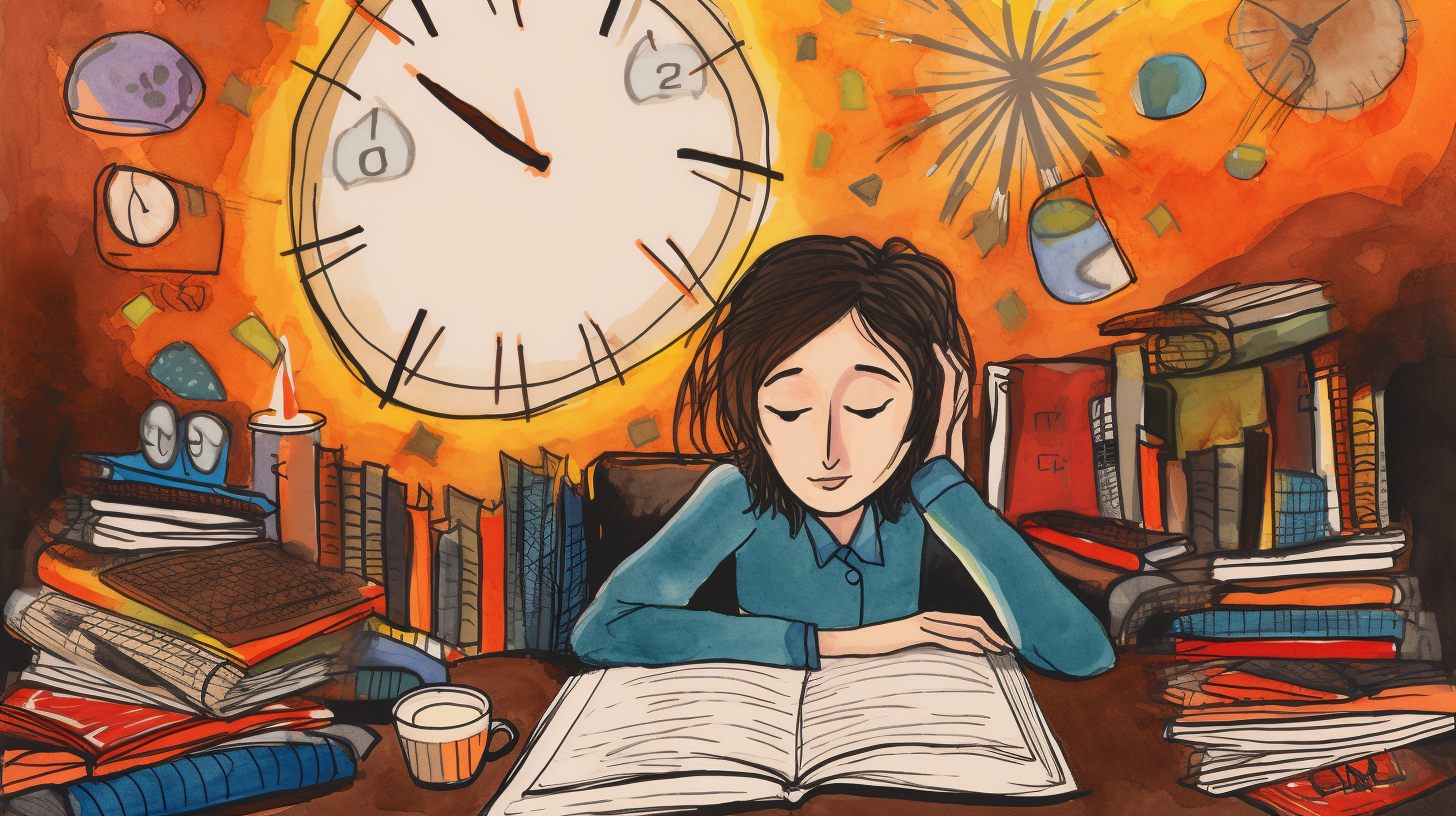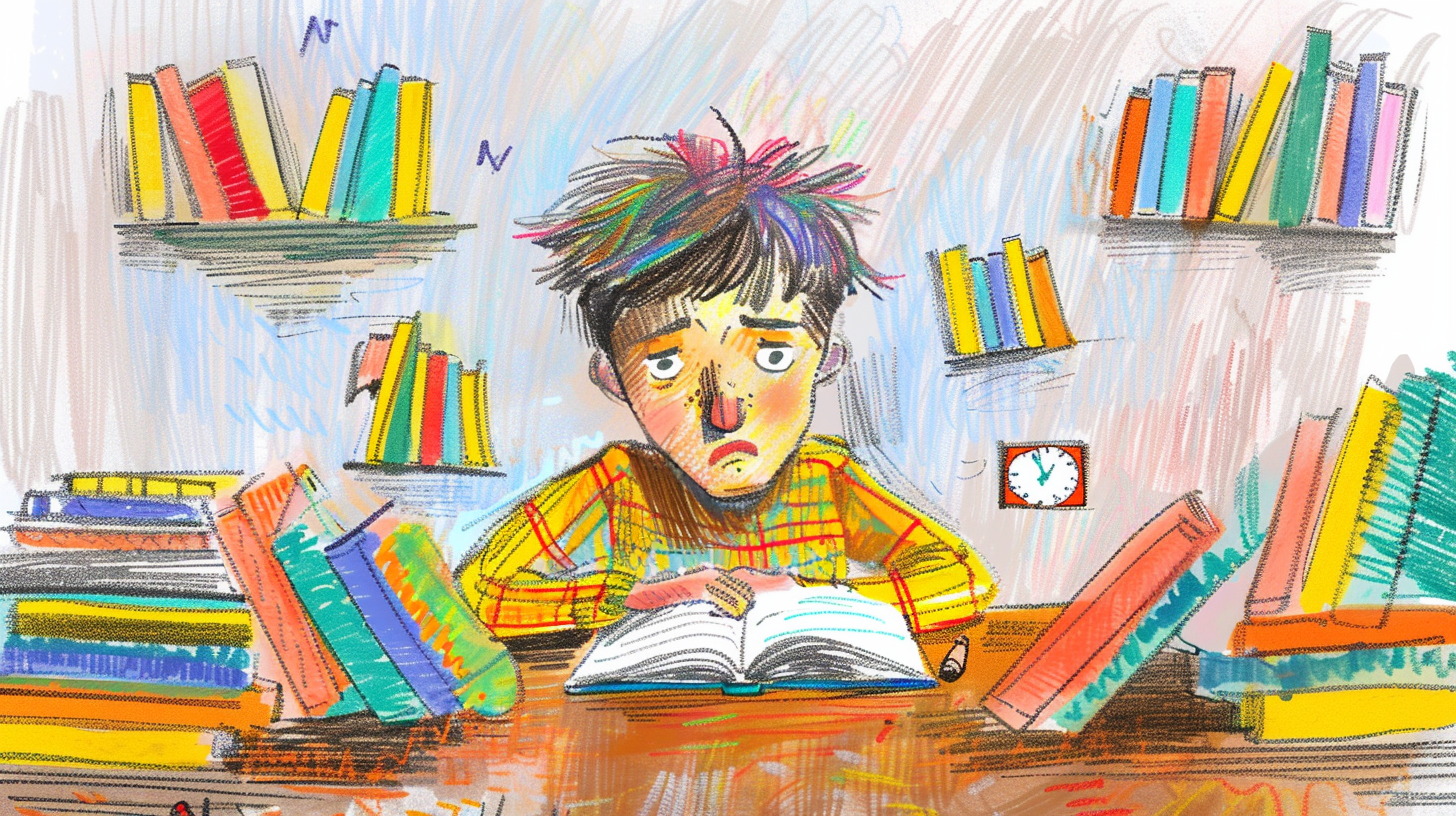You’ve probably wondered, “Is reading bad for your eyes?” It’s a valid concern in our screen-saturated world, where digital devices dominate our reading habits. But let’s get to the heart of the matter: the impact of reading on your eyesight. Understanding how it affects your vision is crucial, whether it’s a paperback or pixels.
In this text, we’ll jump into the effects of reading on eyesight, unpacking the reality of eye strain and how different reading mediums can contribute. We’ll also debunk common myths about reading and vision, providing you with the needed facts. Plus, don’t miss our essential tips for eye-friendly reading practices that can help preserve your vision in the long run.
The Effects of Reading on Eyesight
You’ve likely encountered the widely held belief that reading in the dark or with insufficient lighting can deteriorate your eyesight. Rest assured, does reading in the dark hurt your eyes? The answer is more comforting than you might expect. While it’s a common fear, reading in low light conditions does not cause permanent damage to your eyes. It can lead to temporary eye strain or discomfort. Besides, if you’ve ever wondered, does reading make your eyesight worse? Studies show that the act of reading itself isn’t damaging to your vision.
You might question, can I use reading glasses instead of a prescription? While over-the-counter reading glasses can help magnify text and lessen strain, they’re not a substitute for a tailor-made prescription if you need corrective vision support. So, can reading glasses hurt your eyes? They don’t harm your vision, but using the wrong prescription might lead to discomfort or headaches, hence the importance of regularly checking your eyes.
Does reading in low light hurt your eyes? Even though you are concerned, dim lighting won’t lead to lasting vision impairment. It’s about comfort and finding the right environment where your eyes needn’t work extra hard. Is it bad to read in the dark with a flashlight? It’s not harmful, per se, but certainly not the ideal way to treat your eyes during a long reading session. In truth, reading small text isn’t inherently harmful, but it can contribute to eye strain. Hence, adjusting text size can be a resourceful way to protect your eyes without compromising your love for reading. Are readers bad for your eyes? Not at all, as long as they correctly address your vision needs.
The Impact of Screen Time
Understanding their influence on your eyes is crucial in an age where screens are ubiquitous. Is reading bad for your eyes when it’s done on a screen? Extensive screen time can lead to digital eye strain or computer vision syndrome, which encompasses a range of uncomfortable symptoms such as headaches, blurred vision, and dry eyes. This is your body signaling that a break is necessary.
Modern technology introduces us to the versatility of audiobooks as a viable alternative to traditional books and screen reading. With audiobooks, worrying about whether reading in dim light or staring at a screen for too long is bad for your eyes becomes irrelevant. You can enjoy literature without risking eye strain. Audiobooks offer a remarkable eye-friendly option, ensuring your eyes get the rest they need.
Does reading hurt your eyes more than listening? No, when you embrace audiobooks, you sidestep the potential for eye discomfort altogether. This alleviation of strain underpins audiobooks’ growing popularity among individuals conscious about maintaining good eye health.
Understanding Eye Strain
What Is Eye Strain?
You’ve probably experienced that uncomfortable feeling after prolonged reading or screen time. Eye strain, or asthenopia, occurs when your eyes tire from intense use. Contrary to popular belief, tasks like reading in dim light or staring at a computer screen for too long won’t cause permanent eye damage but can lead to discomfort. Remember that while reading in low light might complicate the experience, it doesn’t equate to long-term harm.
Common Symptoms
Recognizing the signs of eye strain is vital to addressing it promptly. Common symptoms include:
- Overworked eyes, feeling heavy or tired
- Headaches, typically around the temples
- Irritated eyes, feeling dry or scratchy
- Blurry vision, making focus difficult
- Neck and shoulder pain due to poor posture
Factors That Contribute to Eye Strain
Various factors can contribute to eye strain. Here’s what might intensify the discomfort:
- In low light, your ciliary muscle works harder to focus, leading to eye strain.
- Aging can naturally diminish your vision, especially in low light (a condition known as presbyopia).
- Untreated vision problems such as myopia or astigmatism can exacerbate the strain.
- Digital screens emit blue light, affecting your sleep cycle and contributing to digital eye strain.
- You may blink less in dim conditions, potentially causing dry eyes.
While reading small text or using devices in the dark might tire your eyes, remember that activities like listening to audiobooks eliminate the strain entirely. Audiobooks offer a break from the visual demands of reading and screen use, giving your eyes a much-deserved rest. With audiobooks, the concern of whether reading in the dark is bad for your eyes becomes irrelevant, letting you enjoy stories without risking discomfort.
Debunking the Myths
Reading in Low Light Conditions
You might have heard that reading in dim light, or the dark is bad for your eyes. While it may cause temporary discomfort, no evidence suggests it causes permanent damage. If you’re worried, Reading in low light conditions won’t lead to lasting harm. But it’s worth noting that your eyes have to work harder to focus, which can lead to symptoms of eye fatigue, such as headaches or dry eyes.
Proper lighting can enhance your reading experience and reduce strain. When your environment isn’t well-lit, your eyes must strain to decipher text, which might cause temporary redness or irritation. Nevertheless, is reading bad for your eyes in such situations? No—your eyesight isn’t at risk of long-term damage. Switching to audiobooks can prevent these issues and let your eyes rest, especially if reading in low light is your only option.
Reading for Extended Periods of Time
You might wonder if reading makes your eyesight worse when you do it for long stretches. The concern is understandable, but the idea that excessive reading deteriorates your eyesight is a myth. Your eyes may feel tired after a marathon reading session, which is expected considering any part of your body would feel strained after prolonged use without rest. To prevent discomfort, you should take breaks every 40-50 minutes. This isn’t to say that a lengthy read will cause permanent vision problems; it’s a way to maintain comfort.
Audiobooks can be a fantastic alternative here, offering the ability to jump into stories without visual commitment, eliminating the risk of eye strain.
Use of Glasses or Contact Lenses
Many people believe that reading glasses could harm their eyes or that using the wrong prescription could worsen their vision. While incorrect prescriptions won’t result in lasting damage, they can exacerbate symptoms of eye fatigue. Can reading glasses hurt your eyes if they’re the proper prescription? No, they’re specially designed to aid your vision, but they must be the correct strength.
If you find wearing corrective lenses cumbersome during reading, consider the convenience of audiobooks. They allow for the stories to unfold without any extra strain on your eyes, whether from glasses or from the act of reading itself.
Tips for Eye-Friendly Reading
Optimal Reading Conditions
To mitigate concerns such as “Is reading in low light bad for your eyes?” or “Does reading in dim light hurt your eyes?”, ensure your environment is adequately lit. Your reading space should have enough natural or artificial light to comfortably read without straining your eyes. Remember that reading in dark or dimly lit conditions is not inherently damaging to your vision but can cause temporary discomfort. This discomfort is a crucial reason why audiobooks offer a distinct advantage, allowing you to enjoy literature without concern for light levels.
When you’re reading on a digital screen, calibrate the brightness to align with the room’s lighting. If you’re concerned with questions like “Can reading glasses hurt your eyes?” always use eyewear that matches your current prescription. Audiobook listeners can sidestep these issues entirely, as listening does not involve the stress of visual acuity or illumination woes.
Proper Posture and Positioning
Reading for extended periods calls for correct posture to prevent undue stress on your body. If reading text, make sure the material is at a comfortable distance—not too close to cause strain or so far that you’re squinting. There’s no reason to wonder, “Is being in the dark bad for your eyes?” when you’re engrossed in an audiobook. Your posture can remain natural and relaxed, with no need to hunch over or hold a book at a specific angle, taking the pressure off your eyes and body.
Taking Regular Breaks
Even if the risk of lasting harm from reading is low, fatigue can still set in, potentially leading to temporary eye discomfort. Incorporate brief pauses in your reading regimen to stave off tiredness. The 20-20-20 rule, for example, is a method often recommended, but audiobook enthusiasts are inherently exempt from such criticisms. You’re free to immerse yourself in the spoken narrative without the burden of regular breaks to rest your eyes, making the entire experience seamlessly enjoyable.
Conclusion
Rest assured, your love for reading isn’t harming your eyes. Temporary discomfort from marathon reading sessions or diving into your favorite book in dim lighting won’t cause lasting damage. Remember to create a comfortable environment with good lighting and consider the proper eyewear to keep eye strain at bay. Don’t forget to sit up straight, relax your shoulders, and give your eyes the break they deserve.
If you need a visual rest, audiobooks are a fantastic alternative that can give your eyes the respite they need. At the same time, you continue to enjoy great stories and information. Remember these tips; your reading habits can be a source of joy, not a cause for concern.
Frequently Asked Questions
Are reading glasses just magnifiers?
While the FDA refers to over-the-counter reading glasses as “magnifying spectacles,” they are primarily designed to improve the focus on near objects rather than simply magnifying the text.
Is it bad for your eyes to read on your phone?
Reading on your phone can lead to eye strain as phone screens emit blue light that scatters more in the eye, causing visual noise and overstimulation.
Do blue light glasses work?
Based on small-scale trials, research indicates that blue-light-filtering glasses may not provide significant benefits over standard lenses in reducing eye strain.
Are Kindles bad for your eyes?
Kindles employs e-ink technology that is gentler on the eyes and can help reduce eye strain, which is beneficial for frequent readers.
Are cheap reading glasses OK?
Cheap reading glasses won’t damage your vision, but their quality is often lower, so the lenses may be less durable and more prone to scratching.
